Last year, Americans for Peace Now (APN) cancelled its annual fact-finding mission to Israel and the West Bank due to Israel's newly adopted "Entry Law," which bans from entry into Israel non-citizens associated with groups calling for boycotts.
Last year, Americans for Peace Now (APN) cancelled its annual fact-finding mission to Israel and the West Bank due to Israel's newly adopted "Entry Law," which bans from entry into Israel non-citizens associated with groups calling for boycotts.
Yossi Alpher is an independent security analyst. He is the former director of the Jaffee Center for Strategic Studies at Tel Aviv University, a former senior official with the Mossad, and a former IDF intelligence officer. Views and positions expressed here are those of the writer, and do not necessarily represent APN's views and policy positions.
This week, Alpher discusses whether we are on the verge of Israel's "first northern war"; what happened on Saturday; why this is a preview and a catalyst; whether there are potentially mitigating factors and actors; Israel's ongoing disputes with Lebanon that could escalate; where the US fits in; Secretary of State Tillerson and National Security Adviser McMaster's upcoming trip to the region; and the looming threat of indictment for corruption influencing Netanyahu’s behavior toward the growing threats from Israel’s north.
With over $3,000 raised so far to help the Shamasneh family, it's been an uplifting start to APN's Shelter for the Shamasnehs crowdfunding campaign - thanks to supporters like you.
Watch the video below to learn more about the Shamasneh family and the ongoing, settler-led evictions of Palestinians in East Jerusalem.
Now, help APN and Peace Now give the Shamasneh family a new home.
On February 8, APN and 16 other Jewish organizations sent a letter authored and organized by NCJW to White House Chief of Staff General John Kelly expressing our deep concern that Senior Policy Advisor Stephen Miller does not belong in national leadership due to his extreme viewpoints and advocacy of racist policies.
Yossi Alpher is an independent security analyst. He is the former director of the Jaffee Center for Strategic Studies at Tel Aviv University, a former senior official with the Mossad, and a former IDF intelligence officer. Views and positions expressed here are those of the writer, and do not necessarily represent APN's views and policy positions.
This week, Alpher discusses the conflict arenas that have evolved seven years after the Arab Spring: Egypt, Jordan, the Iran-Hezbollah alliance, and the Red Sea/Horn of Africa.
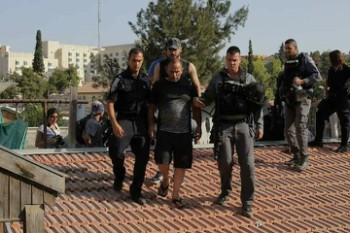
On September 5th, 2017, everything changed for the Shamasneh family.
Forcibly removed from their East Jerusalem home in the middle of the night by Israeli police, it was only an hour later that this Palestinian family of ten found their house was occupied by Jewish settlers, radical ideologues sent to seize the property their organization had taken over through various legal maneuvers.
Since then, the Shamasneh family has been scattered and their lives upended, all in service of an extremist right-wing agenda to gradually take over Palestinian neighborhoods of East Jerusalem.
We won't stand idly by, and you shouldn't either.
Yossi Alpher is an independent security analyst. He is the former director of the Jaffee Center for Strategic Studies at Tel Aviv University, a former senior official with the Mossad, and a former IDF intelligence officer. Views and positions expressed here are those of the writer, and do not necessarily represent APN's views and policy positions.
This week, Alpher discusses a Likud MK's bill to apply Israeli sovereignty to all the West Bank settlements; the comparison of incarcerated Palestinian teenager Ahed Tamimi to Hannah Senesh, Anne Frank and Joan of Arc; Poland's legislation of a ban on statements implicating it and Poles in general in the WWII genocide of Jews; and President Trump's announcement of the withholding of US funds not only for UNRWA but for the Palestinian Authority, where the United States finances vital security and development projects.
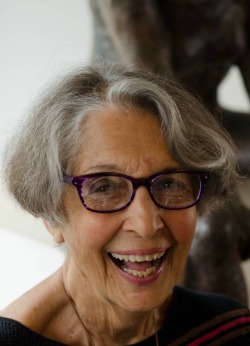
When did we go from being a people who plant trees to a people who cut and burn them down?
When I see photographs of Israeli settlers cutting, uprooting, or setting fire to Palestinians' olive trees to intimidate them, I can't reconcile what I see with what I thought I knew of our own tradition.
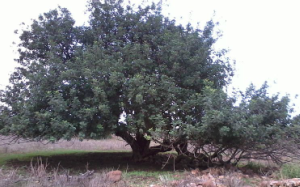 Tu Bishvat is the New Year of the Trees, one of four new years in our tradition. Children
celebrate the holiday with songs and tree planting. On Tu Bishvat, it is common to retell the Talmudic story of
the famous miracle worker Honi who once saw a man planting a carob tree. Ḥoni said to him: How long until it
will bear fruit? The man said: Not for seventy years. Ḥoni said: Do you expect to live long enough to benefit
from this tree? The man responded: I found a world full of carob trees. Just as my ancestors planted for me, I
am planting for my descendants.
Tu Bishvat is the New Year of the Trees, one of four new years in our tradition. Children
celebrate the holiday with songs and tree planting. On Tu Bishvat, it is common to retell the Talmudic story of
the famous miracle worker Honi who once saw a man planting a carob tree. Ḥoni said to him: How long until it
will bear fruit? The man said: Not for seventy years. Ḥoni said: Do you expect to live long enough to benefit
from this tree? The man responded: I found a world full of carob trees. Just as my ancestors planted for me, I
am planting for my descendants.
Jews venerate this symbolism of a future for our children, and we show our faith in that future by planting trees. The chalutzim who built the Jewish state planted forests. Today we recognize that covering entire hillsides with trees common in northern Europe was not so environmentally sound, but the impulse was a good one. Planting trees means we believe that there will be a future.
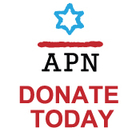 Years ago I went to the West Bank with Rabbi Arik Ascherman, who then headed the
organization Rabbis for Human Rights, to help with the Palestinians' olive harvest. We were a group of
international volunteers from many countries. When Arik gave us instructions, I felt ashamed. "If the settlers
come to make trouble, don't engage with them. Your job is to interpose yourself between the Palestinian
farmers and the settlers. The IDF will protect the settlers; that's what the government has directed them to
do." For some of the international volunteers, this was their introduction to Israel. This was the ugly side.
Years ago I went to the West Bank with Rabbi Arik Ascherman, who then headed the
organization Rabbis for Human Rights, to help with the Palestinians' olive harvest. We were a group of
international volunteers from many countries. When Arik gave us instructions, I felt ashamed. "If the settlers
come to make trouble, don't engage with them. Your job is to interpose yourself between the Palestinian
farmers and the settlers. The IDF will protect the settlers; that's what the government has directed them to
do." For some of the international volunteers, this was their introduction to Israel. This was the ugly side.
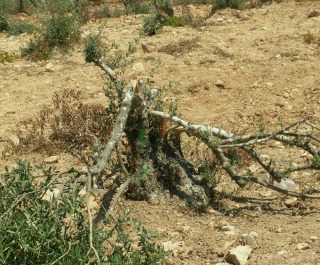 Every year, settlers destroy hundreds of Palestinian trees in acts of wanton vandalism. They
attack the farmers and prevent them from harvesting the fruit of those long-lived trees. What kind of future do
Palestinian children see as their Jewish neighbors destroy their olive trees, their source of livelihood? The
message is clear: Arabs not wanted here.
Every year, settlers destroy hundreds of Palestinian trees in acts of wanton vandalism. They
attack the farmers and prevent them from harvesting the fruit of those long-lived trees. What kind of future do
Palestinian children see as their Jewish neighbors destroy their olive trees, their source of livelihood? The
message is clear: Arabs not wanted here.
Can we ever go back to treating trees with reverence? Can we observe Tu Bishvat with a sense of joy and hopefulness? I don't accept the alternative. Our tradition enjoins us to "choose life" and this includes trees.
Israel’s Peace Now movement and Americans for Peace Now, its American sister-organization, work to end the occupation and establish peaceful relations between Israel and an independent Palestinian state in the West Bank and Gaza Strip. Please support us in this work.
Thank you,
Barbara Green
P.S. According to the UN Office for the Coordination of Humanitarian Affairs, in 2017 alone, nearly 3,000 olive trees have been vandalized by settlers. This doesn't include assaults on civilians and other destruction of property - all forbidden by Jewish law- but the destruction of these trees is the greatest irony because they are olive trees - the symbol of peace. Help us expose those who sow hatred and conflict through assault and vandalism. Support Americans for Peace Now.
Tu Bishvat begins the night of January 30th. Tu Bishvat is a Jewish holiday occurring on the 15th day of the Hebrew month of Shevat. It is also called "Rosh HaShanah La'Ilanot," literally "New Year of the Trees."
Barbara Green has been a volunteer for Americans for Peace Now for many years. She lives in Washington, DC.
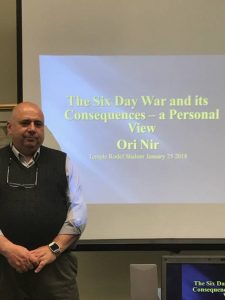 APN’s Ori Nir spoke on January 26th at Northern Virginia’s Temple Rodef Shalom on
the Six Day War of 1967, the opportunities it provided for Israel to reach peace with its neighbors and on the
way in which the 1967 war the 1973 Yom Kippur War and the 1982 Lebanon War shaped Israel’s peace
movement.
APN’s Ori Nir spoke on January 26th at Northern Virginia’s Temple Rodef Shalom on
the Six Day War of 1967, the opportunities it provided for Israel to reach peace with its neighbors and on the
way in which the 1967 war the 1973 Yom Kippur War and the 1982 Lebanon War shaped Israel’s peace
movement.
Watch the video of Debra Shushan, APN's Director of Policy and Government Relations, interviewed on TRT World regarding the American Jewish community's response to President Trump's decisions on Jerusalem. She debated Morton Klein of the Zionist Organization of America (ZOA).